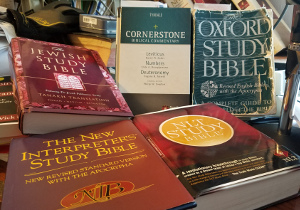On Christian Fiction and Covenant
In the early days of my company, Energion Publications, I tried to post some reflections immediately after each new book release. Things have gotten much busier, and I’m behind, but I still hope to publish reflections. Perhaps if I’m diligent, I can catch up! I want to make clear that this isn’t a review, nor is it an official statement of my company. I don’t have anyone review or even proofread these notes. This may not (and in this case will not) be entirely about one book. It just contains my personal reflections on helping to bring a new book to the public.
Before I look at the specific book, I want to say a few things about Christian fiction. There has been some debate about just what constitutes Christian fiction. Is it fiction that has a Christian theme? Does it include books that have (identifiable) Christians as characters? Does it have proclamation of the gospel as its central goal?
I’m not too concerned with settling the debate. I doubt people will all come to agree. But here’s how I see it, and how I tend to divide Christian-related fiction.
First, there are books that involve Christians in an identifiable way. They go to church (or not). They pray. They talk about their faith and how it relates to events. If the story is not portraying an explicitly Christian theme, I simply call this fiction. I’d like to see people of other faiths and of no faith at all portrayed as who they are in any novel. Just as we expect a good novelist to understand how various characters think and feel based on other factors, such as political views, family, culture, and psychology, we should expect a character to be portrayed accurately in terms of religious views and spirituality. A novel set in modern America should almost always have someone in it who is a person of faith, and just having a Christian in the book does not make it a Christian novel, any more than having a Muslim in it would make it a Muslim novel.
But now let’s use the last example to bring us to the next category. A novel set in a Muslim community, in which characters attend prayers on Friday, fast during Ramadan, and search for answers from the Qur’an might well be a Muslim novel. But if the theme instead is one of a Muslim character who convinces a Christian to convert to Islam, that would certainly be a Muslim novel.
Now just reverse the names of the religions. Many Christian novels have as a plot, or at least a subplot, the conversion of one of the characters. One form of this kind of novel is a Christian romance that does not involve Christians getting romantically involved, but rather has one lead character (most frequently the female lead) fall in love with the other (generally the male lead), even though he is not of her faith. Over the course of the novel the one is converted so that they can both be saved and live happily ever after, including going to heaven when they die. (Please don’t send me one of these. There are enough of them already.)
Then there are works of fiction that portray a particular Christian theme. Our first fiction publication, Megabelt, is such a book. It portrays life in the large Christian churches of the Bible belt (mega=megachurch, belt=Bible belt). It is Christian themed and discusses Christian life. It even tends to push readers to try to get out of their “Christian” cultural ruts. At the same time, I know there are non-Christian readers who have enjoyed it. At the other extreme of this category (in our catalog) is Prayer Trilogy. By its title you can tell it has a religious theme. But it is not a book about converting people (though it does talk redemption). Rather, it portrays Christians who pray and try to live out their faith. You could enjoy this even if you saw coincidence (and just plain good people) where the author sees providence.
As you can tell, I think the boundaries aren’t clear. For example, how would one view the works of Andrew Greeley? I’ve said before that he preaches the gospel in writing. Many conservative protestants will miss this, because there is an overt theme of sex, but he still gets God involved and even draws out the love of God as portrayed through human passion (Song of Songs anyone?). I know many non-Christian readers enjoy Greeley’s novels. So the boundaries are not absolutely clear.
 So let’s get to Covenant, the recent novel released by my company. It’s author, Daniel Martin, has written a definitely Christian novel. I think wherever you stand on the various definitions, this one is going to be labeled “Christian.” Its author wouldn’t want it any other way. If there was any chance you’d miss it, you might be clued in by the large angel on the front cover.
So let’s get to Covenant, the recent novel released by my company. It’s author, Daniel Martin, has written a definitely Christian novel. I think wherever you stand on the various definitions, this one is going to be labeled “Christian.” Its author wouldn’t want it any other way. If there was any chance you’d miss it, you might be clued in by the large angel on the front cover.
Covenant isn’t going to convert anyone to Christianity. I take the time to say this, because people make this mistake frequently. Our books don’t convert people. We don’t convert people. Conversion is between God and the individual. It’s an act of the Holy Spirit, not of humans. What we can do, and what Covenant does, is bear witness. It’s a testimony in fictional form of someone who has been in the trenches, who knows Jesus Christ, and who has chosen this form to tell the story. I don’t mean here that it’s autobiographical, except in the sense that it’s a biography of every Christian. “It’s by grace you’re saved, through faith. And that’s not something you did yourself. It’s God’s gift” (Eph. 2:8)!
There are going to be challenging moments for people of various theological views. People in the mainline churches, for example, don’t like to talk about angels and demons (especially angels in this case) being quite this active. Redemption comes as God works through people and by sending angels. Spiritual warfare is very active and critical. If there weren’t challenging points, I would never have published the book. Sometimes a novel is a good way to encounter some of these things. Just what do you believe? Have you thought about it? Have you studied it?
While I say this isn’t autobiographical, I recall remarking as I was reading the manuscript for the first time that it was clearly written by someone who had been in the trenches. The author knows how to describe the down and out, he knows how to describe trouble, and he also knows how to describe redemption. And yes, he even knows how to describe the struggles that go through redemption. Don’t look for any quick and obvious miracles to derail the plot. The angels are there, but they’re generally pushing (and helping) the people to find their way and do the things they are called to do. That is when they aren’t riding motorcycles or sliding down the noses of statuary. But you’ll have to read the book to find out about that.
You don’t find a lot of preaching in the book. What you find is people acting and living. There is a sermon here, but it’s in the story. It merits the title Christian fiction. I think you’ll enjoy it. It’s witness may even be the means by which God speaks to you.


